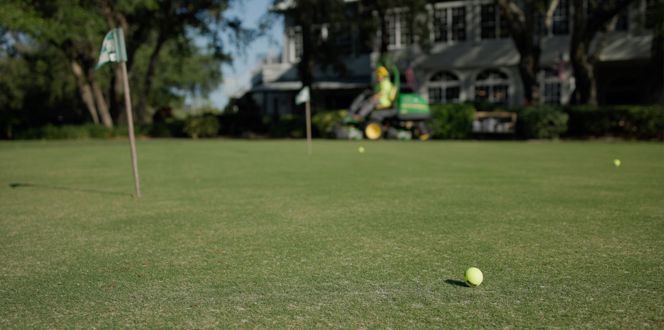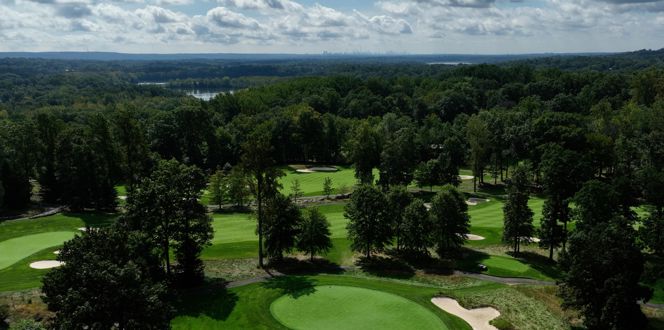Firestone Country Club
Using drones to perform herbicide application on noxious Canada thistle, Davey was able to control invasive vegetation on tallgrass areas in the Fazio golf course at Firestone Country Club.
Located in Akron, OH, Firestone Country Club is a privately owned golf course that opened in 1929 and is known for its long-standing relationship with the PGA and PGA Tour Championship. Sprawling across 600 acres, Firestone Country Club houses three courses, known as the North, South, and Fazio courses. The club also has overnight accommodations, dining facilities, and fully equipped private event venues.
The Fazio course, formerly known as the West course, is a links-style course that was built in 1989. With fewer trees surrounding the area to restrict shots, players find their challenges in native tallgrass areas and sand bunkers that frame the sightlines and require accuracy and distance control to avoid.
The course’s tallgrass areas are susceptible to invasion from non-native plants and noxious broadleaf weeds, including Canada thistle. The state of Ohio encourages control of these weeds because of their invasiveness, toxicity, and other harmful characteristics that can negatively impact people and ecosystems.
Firestone called on Davey Tree to assist in treating the non-native plants and noxious weeds in the tallgrass areas. Because the steep slopes in the area could cause difficulties in getting crews and equipment where they are needed, along with the reduced number of trees, Davey suggested using drones for herbicide spraying.
Taking To The Skies For Herbicide Application
Davey Tree joined forces with Davey Resource Group’s drone services team to control the noxious weeds. The first application took place in spring 2022. A two-person crew piloted a drone to spray 13.5 acres of native grass areas within the Fazio course. Other broadleaf and woody vegetation was controlled along with targeting Canada thistle. Davey also sprayed a pre-emergent to reduce the re-establishment of additional undesirable vegetation.
With drone spraying, Davey was able to perform a more accurate herbicide application without disrupting the tallgrass areas with equipment or crew presence. Drone spraying also decreased crew exposure to the herbicide. The first application was completed in less than two days, which significantly reduced the time and cost of the application process.
Davey plans on a second application in spring 2024 with a reduced number of sprayings over time as the weeds become controlled.
By using drones to control Canada thistle, Davey demonstrated their ability to stay ahead of the curve by using the latest technologies to help Firestone do their part in controlling invasive and undesirable vegetation.





